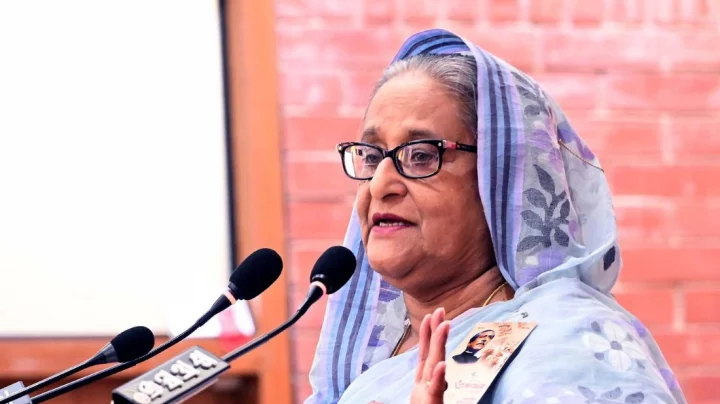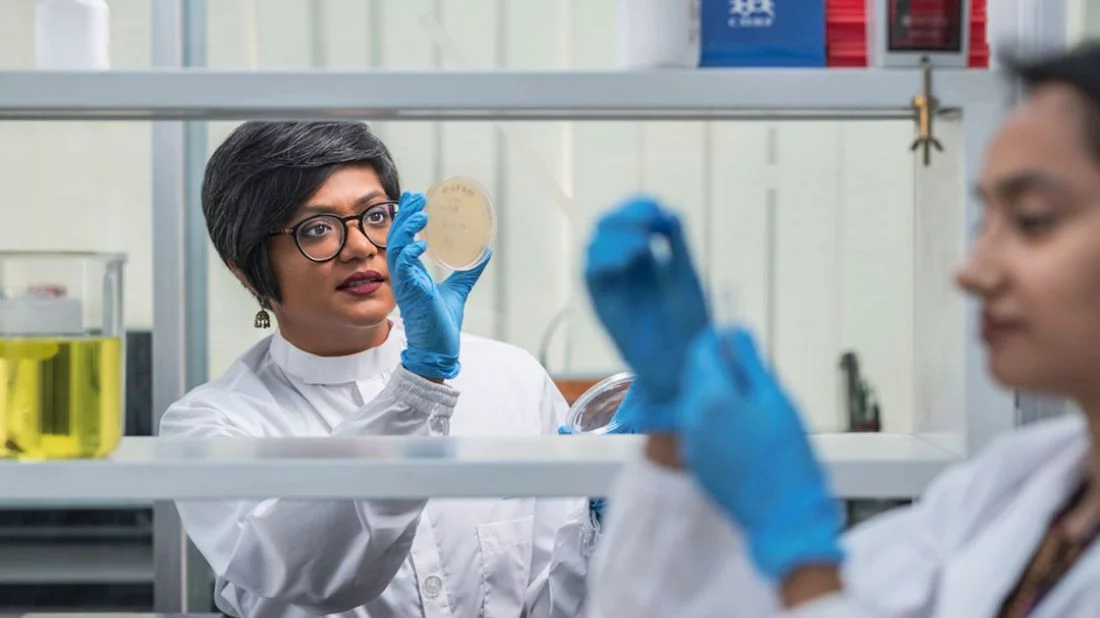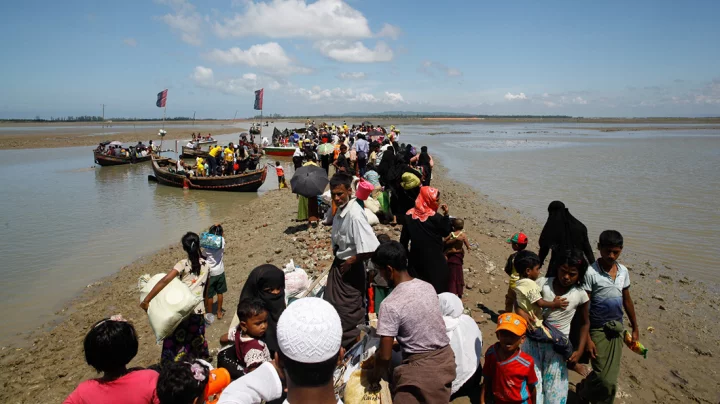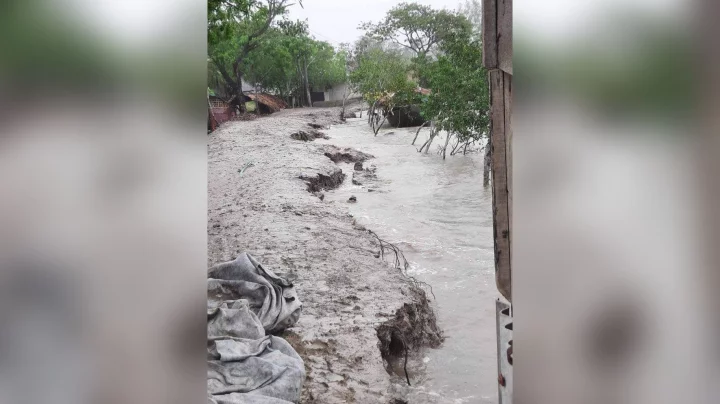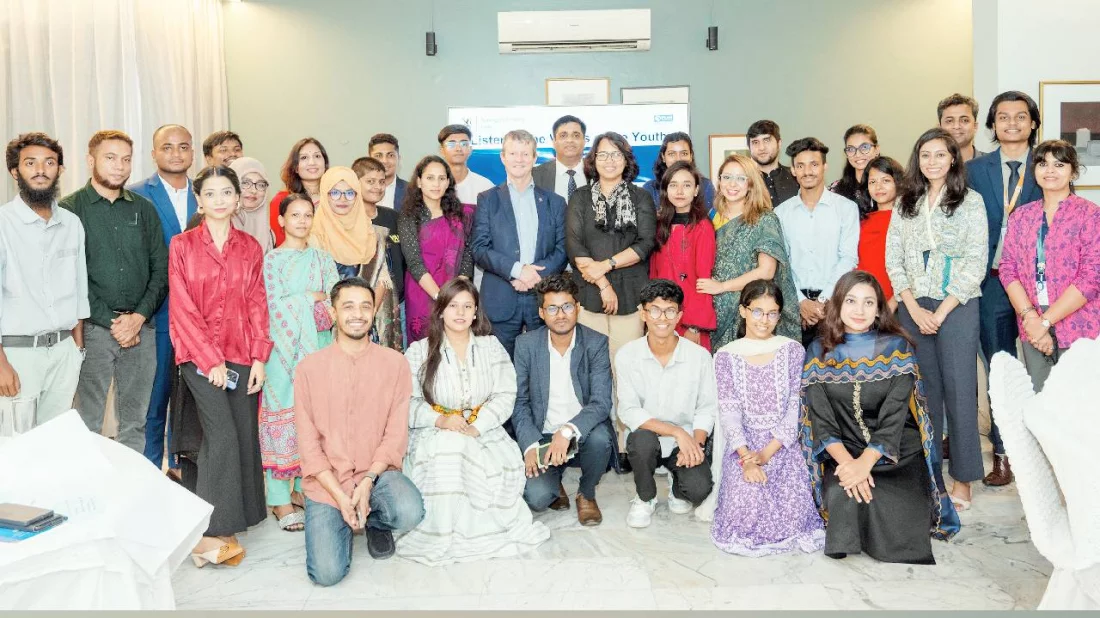
Youths voiced concerns ranging from challenges in accessing quality education and employment opportunities to societal issues such as child marriage, disability inclusion, and gender inequality, investment in girls' leadership, and accountability for girls' rights at a seminar held in Dhaka recently.
They also proposed solutions, including undertaking startups and entrepreneurship, instead of focusing on traditional jobs, promoting skill development programs tailored to current market demands, and advocating for gender equality through community engagement and awareness campaigns.
The Royal Norwegian Embassy in Dhaka, in collaboration with Plan International Bangladesh, hosted the seminar, titled “Listen to the Voices of the Youth”, at the Norwegian Ambassador’s residence.
The seminar focused on identifying and addressing the key social issues affecting youth in Bangladesh and explore practical solutions and strategies to address these issues and to explore strategies for enhancing youth employment in Bangladesh, focusing on skill development, entrepreneurship, and public-private partnerships to reduce unemployment and improve economic opportunities for young people.
Around 30 youths from diverse backgrounds participated in the seminar. The event provided a platform for in-depth discussions, the exchange of innovative ideas, and gaining valuable insights into the current situation and future of the youth in Bangladesh.
Ambassador of Norway to Bangladesh Espen Rikter-Svendsen highlighted the need for youth involvement in solving societal challenges.
"Bangladesh still has a youthful population, but the voices of young people are seldom heard in the public sphere. Solutions to the country’s and the world’s many challenges and pressing issues must be sought in dialogue with the people who will still be here in the decades ahead," he said.
The Ambassador said the young generation can deliver the crucial demographic dividend that Bangladesh surely needs if the country is to reach its ambitions.
“We all probably agree the traditional gender norms of a patriarchal society is a challenge. Not least are they holding lots of young people, in particular women, back from realizing their potential.
“Our (Norway) experience shows that it takes kind of a whole of society approach. It takes firm action from the government and from others, and it takes time to change attitudes, to change norms, to act, actually see the effect of change.
“But no society can afford to exclude half of its population from its political arenas and from its workforce. It doesn't make human, it doesn't make political, and it doesn't make economic sense in any way,” he said.
Kabita Bose, country director for Plan International Bangladesh, emphasized the need for increased investment in youth activism and leadership.
“We want girls and youths to have ample opportunities to flourish. We want youths to fulfil their dreams, and we are here to support them. Plan International Bangladesh is here to provide them with assistance to achieve economic empowerment and connect them with proper channels to enhance their leadership and entrepreneurial qualities,” she said.
“This depiction is concerning for us, especially in our endeavour to build a prosperous Bangladesh for both the current and future generations,” she said.
The country director urged the youths to dream until their last breath. “When I secure a job, people often say that my dream has been fulfilled. But why should I be restricted to just one dream? We can continue dreaming until our last breath.”
“Once one dream is realized, we can pursue another. You cannot progress by sticking to just one dream," she advised the youth, encouraging them to have multiple plans.
Film Director Raka Noshin Nower and President of Women and e-Commerce Trust (WE) Nasima Akter Nisha presented the keynote speeches.
They discussed topics such as promoting better social awareness of youth issues, gender equality, freedom of speech, creativity and tolerance among youth, creating a more skilled youth workforce, and facilitating youth entrepreneurship to combat unemployment.
They also highlighted existing traditional social norms and how to overcome them to advocate for gender equality rights, thereby creating a positive impact for the youth in the country.
“Youths should be motivated and positively encouraged. They need to practice and pursue their dreams to achieve them. There are many resources around them, and they must curate these by gathering accurate knowledge,” Raka Noshin Nower said.
Nasima Akter Nisha focused on entrepreneurship, skills, and opportunities for Bangladeshi youth.
She pointed out: “Skill development is required for the youths to move forward in this competitive society. They have to think beyond. In this regard, support from NGOs, the government, and corporations is required to facilitate youth employment.”
The seminar included a panel discussion and breakout sessions where the youth participants discussed these crucial social issues and proposed possible solutions.
During the panel discussion, the participants raised other related societal issues such as the key factors driving child marriage, disability inclusion in institutions and workplaces, problems of gender norms and stereotypes, preventing persecution of minority and marginalized communities, challenges faced by youth while seeking employment and undertaking startups, and acquiring skills that are in demand in the ever-changing job market and entrepreneurial landscape.
Marzuk AN Hossain, research associate at Brac’s BIGD; Shourza Talukder, research associate at CPD; Farhana Raha, executive member of YES Bangladesh; and Alamgir Kabir, member of the Youth Taskforce for the Future, participated in the panel discussion moderated by Faez Belal, executive director of the Barisal Youth Society.
Farhana Akter Raha raised the issue of child marriage, while Shourza Talukder spoke about the need to bridge the gap between government policymakers and the youth. Marzuk Hossain discussed the importance of integrating classroom training with on-the-job training and learning the use of Artificial Intelligence (AI), while Alamgir Kabir emphasized the importance of creating an inclusive society.
“Recently, while planning enjoying coffee at a charming café in Gulshan area, I realized that my friend who uses a wheelchair would not be able to join due to the lack of accessibility,” Alamgir Kabir lamented. “It's imperative to create an accessible society to ensure that no one is left behind. Accessibility is not a privilege; it's a right.”
Nishath Sultana, Director of Policy, Advocacy, Influencing, and Campaigns at Plan International Bangladesh, concluded the seminar by stating that the event provided an opportunity to learn how the youth are moving forward and overcoming challenges.
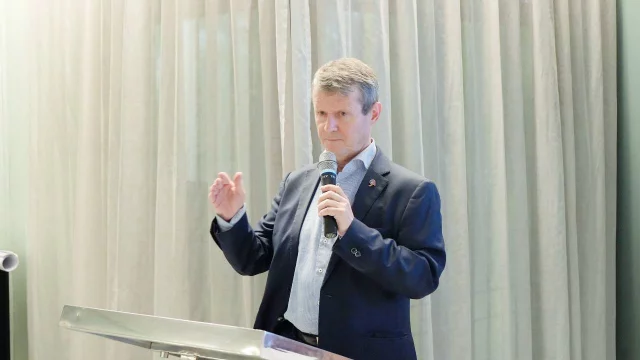 Espen Rikter-Svendsen, Norwegian Ambassador to Bangladesh
Espen Rikter-Svendsen, Norwegian Ambassador to Bangladesh
The youth is both the present and the future of any country. And the way the country looks after its youth provides them with opportunities, develops their skills and talents, and offers them a space to form their lives is key to the quality of the future of that country.
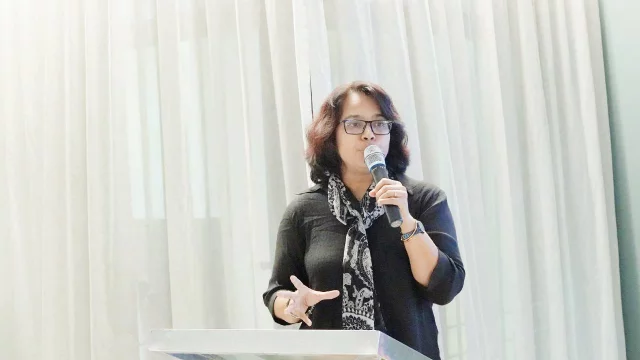 Kabita Bose, Country Director for Plan International Bangladesh
Kabita Bose, Country Director for Plan International Bangladesh
Continue dreaming until your last breath. Once one dream is realized, pursue another. You cannot progress by sticking to just one dream. Life belongs to you, society belongs to you, the country belongs to you, the world belongs to you, so your dreams belong to you. We are here merely to support you.
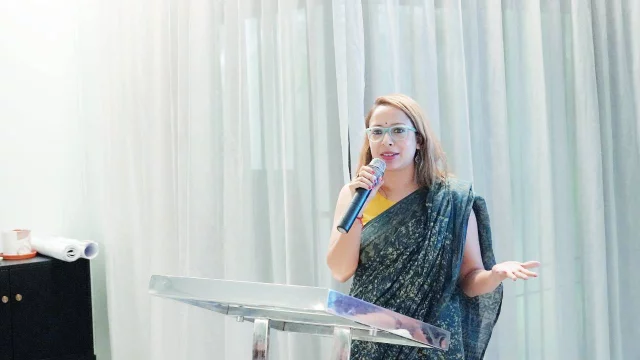 Raka Noshin Nower, Film Director
Raka Noshin Nower, Film Director
I never had just one dream; I always worked with multiple dreams. There wasn't a single day when I didn't dream something new. Whatever I dreamt, I aimed to incorporate it into my filmmaking. When I decided to become a filmmaker, I remained steadfast in my quest. Nothing could distract me from that goal.
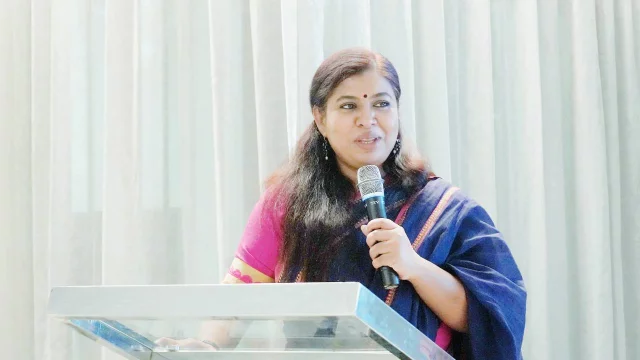 Nasima Akter Nisha, President of Women and e-Commerce Trust (WE)
Nasima Akter Nisha, President of Women and e-Commerce Trust (WE)
I don’t believe in theoretical education alone. I believe that without practical knowledge, we'll encounter challenges in the future. AI is advancing rapidly. In the next two years, what’s going to happen, we don’t know. Many traditional jobs may become obsolete. Therefore, it's essential to conduct research and acquire practical skills alongside conventional education.
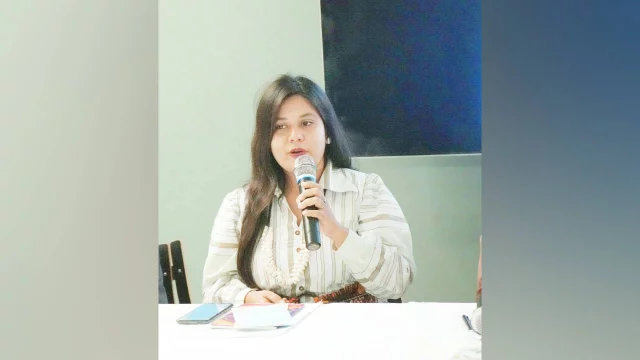 Farhana Akter Raha, Joint Coordinator at the Hunger Project
Farhana Akter Raha, Joint Coordinator at the Hunger Project
The issue of child marriage still persists. Factors such as poverty, lack of social safety nets, societal stigma, and religious prejudices contribute to this problem. Impoverished families often resort to marrying off their daughters at a young age. They perceive it as a means to secure their daughters' future and alleviate financial burdens.
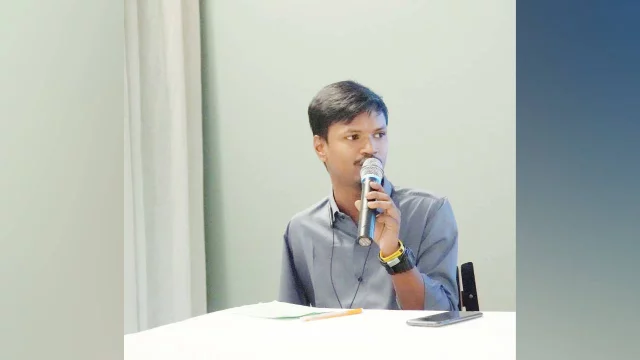 Alamgir Kabir, member of the Youth Taskforce for the Future
Alamgir Kabir, member of the Youth Taskforce for the Future
We must recognize that diversity is beautiful. The primary challenge faced by people with disabilities is the lack of representation in society. We are told as backward community. But I say we have been kept backward. In decision making process, people with disabilities must be included. Without that, we can’t do inclusive society.
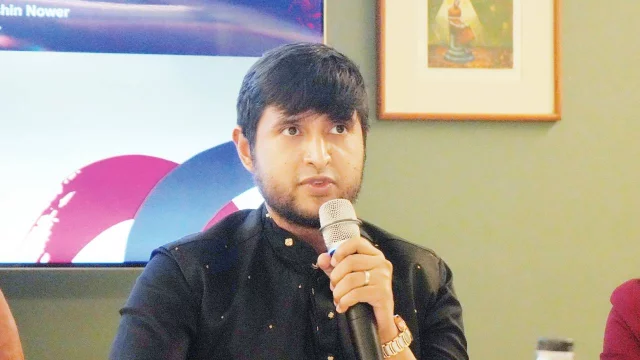 Marzuk AN Hossain, BRAC Institute of Governance and Development (BIGD), BRAC University
Marzuk AN Hossain, BRAC Institute of Governance and Development (BIGD), BRAC University
Studies indicate that the employability of young individuals rises, and their income increases when we integrate classroom training with on-the-job training. It enhances the impact of the training programs. AI shouldn't be viewed as a challenge; rather, I see it as an opportunity. The key lies in understanding how to leverage its potential effectively.
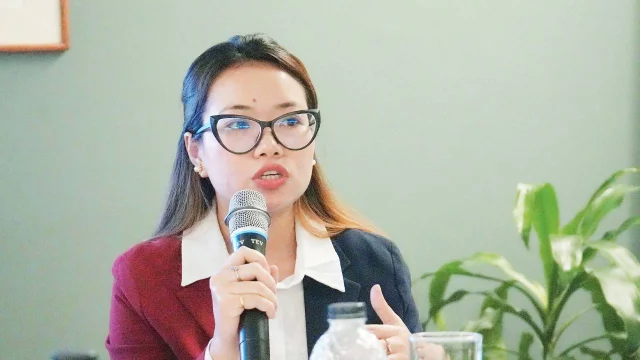 Shourza Talukder, Research Associate at CPD
Shourza Talukder, Research Associate at CPD
While engaging with young people, we've noticed that their perspectives often go unheard by the government, their voices are not given due attention. CSOs and NGOs have a crucial role in bridging this gap. They can step forward and advocate for the youth, amplifying their voices. We need a whole-of-society approach.
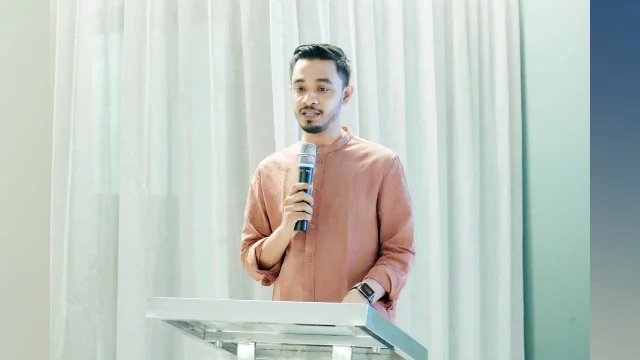 Moderator Faez Belal, Executive Director, Barisal Youth Society and a climate activist
Moderator Faez Belal, Executive Director, Barisal Youth Society and a climate activist
Our youths are playing a crucial role in building an inclusive society. They are contributing in every field and reaching places that others cannot, particularly in climate-sensitive regions. As we move towards a sustainable future, it is the dedication and efforts of our younger generation that are making the most significant impact.
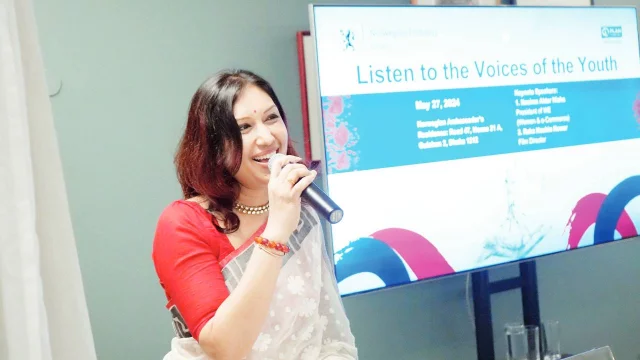 Nishath Sultana, Director- Policy, Advocacy, Influencing and Campaign at Plan international Bangladesh
Nishath Sultana, Director- Policy, Advocacy, Influencing and Campaign at Plan international Bangladesh
You speak about challenges, opportunities, and how to overcome those barriers. This truly fills us with pride. We learned from you how to move forward facing challenges. You will spread those examples around you so that thousands of youths can find inspiration in them. Today can be the first day of the future.



